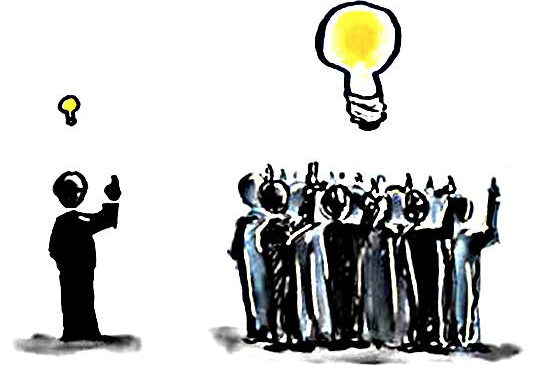
Hudson Valley Public Relations
Crowdsourcing has far reaching potential.
By Andrew Ciccone | Published | No Comments
Crowdsourcing is a type of activity in which an individual, an institution, a non-profit organization, or company proposes to a group of individuals of varying knowledge, heterogeneity, and number, via a flexible open call, the voluntary undertaking of a task. Those in the crowd contribute their work, money, knowledge and/or experience for mutual benefit. Rewards may be economic, social recognition, self-esteem, or the development of individual skills, while the crowdsourcer solves the problem.
Simply said, people working together collectively to solve problems.
Crowdsourcing can either take an explicit or an implicit route.
Explicit crowdsourcing lets users work together to evaluate, share, and build different specific tasks (i.e. books, webpages) editing other’s work.
Implicit crowdsourcing solves a problem as a side effect of something else they are doing. Standalone crowdsourcing solve problems as a side-effect of the task they are doing. Piggyback crowdsourcing accesses information generated for a third-party site.
TYPES OF CROWDSOURCING
Crowdvoting gathers opinions and views on a topic.
Wisdom of the crowd collects large amounts of information and aggregates it for an accurate assessment of a topic. The rationale is that a group of people is often more intelligent than an individual.
Wikipedia is perhaps the best example of crowdsourcing.
Crowdfunding finances projects much like a public offering of stock in order to raise a certain monetary goal. Crowd funding began as a way to support the arts on the Internet, but now it’s expanded to business ventures and the rules aren’t quite clear.
Kickstarter is the largest crowd-funding site. There are real success stores here however for ventures that fail there is no clear way of being compensated.
One Kickstarter entrepreneur raised $10 million to build a “smartwatch” that streams email and text messages. A backer demanded a refund for the venture having missed it’s first delivery deadline. Sorry. Kickstarter’s company’s policy states that refunds must be granted on failed ventures. The details are a bit fuzzy.
While the SEC weighs in on crowdsourcing, Kickstarter is growing by leaps and bounds. Seems that crowdfudning has far reaching potential.
Source:
Wikipedia.org/crowdsourcing
npr.org/allthingsconsidered/kickstarter: does anyone get their money back







